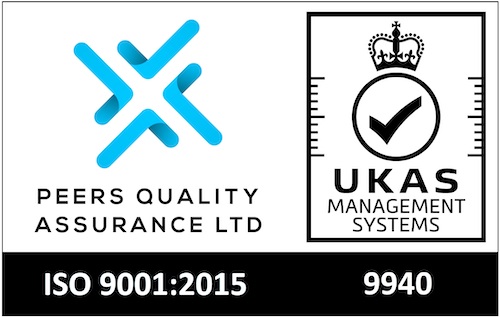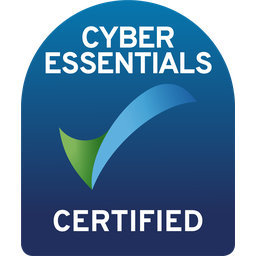Enhanced DBS Checks
Complete Guide to the Enhanced DBS Check: Your Path to Secure Employment
Navigating the world of Enhanced DBS Checks can be overwhelming, especially when your career depends on it. These checks are crucial for roles involving vulnerable groups and regulated activity, ensuring the safety and well-being of those who need it most. In this comprehensive guide, we’ll provide you with the essential knowledge and practical information to help you secure your Enhanced DBS Check, show you the difference between them an basic dbs checks and standard DBS checks and ensure you confidently embark on your path to secure employment.
Key Takeaways
- Enhanced DBS Checks provide an extensive criminal record check to employers for positions involving vulnerable groups.
- The application process requires the collection and verification of specified documentation, with turnaround times ranging from 5-10 working days or as little as 24 hours.
- Employers must comply with applicable privacy and data protection laws when handling Enhanced DBS Check information, make decisions based on results, and understand requirements specific to healthcare/education sectors.
Understanding Enhanced DBS Checks
Enhanced DBS Checks, also known as enhanced checks, stand as the pinnacle of criminal record checks, equipping employers with exhaustive vetting details for positions involving vulnerable groups. Conducted by the Disclosure and Barring Service (DBS), these checks serve as a vital tool to assist organisations in making sound and suitable employment decisions. Known as enhanced disclosure, these checks are available exclusively to organisations requiring ‘recruitment or suitability decisions’. In contrast, basic DBS checks provide a lower level of disclosure for other positions. With online enhanced DBS checks, the process becomes more accessible and efficient for employers.
Being the most exhaustive type of DBS check, the Enhanced DBS Check provides a meticulous analysis of an applicant’s criminal history, enabling employers to possess the requisite information to make considered decisions about potential employees. In the following sections, we’ll delve into the eligibility criteria, application process, and other essential aspects of obtaining an enhanced check.
The Eligibility Criteria for Enhanced DBS Checks
The role of the applicant and its inclusion in the Rehabilitation of Offenders Act (ROA) 1974 dictate the eligibility for Enhanced DBS Checks. With a focus on roles involving vulnerable groups, these checks help to protect the safety and well-being of those who need it most.
The specific emphasis on regulated activity highlights the importance of thorough background checks for roles that have a direct impact on the lives of vulnerable adults, particularly those who are most susceptible to harm.
Roles Involving Vulnerable Groups
Positions with vulnerable groups, including healthcare professionals, support workers, and teachers, usually qualify for Enhanced DBS Checks. These checks provide a higher level of scrutiny for those working closely with vulnerable individuals, ensuring that the people entrusted with their care are suitable for the job. Some examples of roles that necessitate Enhanced DBS Checks include:
- Childminders
- Foster carers
- Medical professionals
- Taxi drivers
- Gambling Commission employees
When working with vulnerable groups, support workers and teachers play a crucial role in providing:
- Emotional support
- Recognising each individual as distinct
- Exhibiting empathy
- Sustaining effective communication skills
The Enhanced DBS Check process ensures that these professionals have the appropriate background and qualifications to fulfill their responsibilities and maintain a safe environment for the vulnerable individuals they serve. In comparison, a basic DBS check provides a lower level of scrutiny.
Legal Framework
The Rehabilitation of Offenders Act (ROA) 1974 and other pertinent legislation form the legal groundwork for Enhanced DBS Checks. This act, along with the Protection of Freedoms Act, The Safeguarding Vulnerable Groups Act, The Police Act, and The Data Protection Act, provides a solid foundation for the Enhanced DBS Check process and the protection of vulnerable individuals.
By adhering to these legislations, employers and organisations can ensure that their employment decisions are both legal and in the best interest of the vulnerable groups they serve.
The Application Process for Enhanced DBS Checks
The application process for Enhanced DBS Checks encompasses collection of requisite documentation, affirmation of identity, and submission of the application via a certified provider. This process ensures that all the required information is collected and verified, allowing employers to make informed decisions about the suitability of prospective employees for roles involving vulnerable groups.
In the following sections, we’ll explore the specifics of the application process, including the documentation required and the steps to submit your application.
Documentation Required
Applicants must provide original documents and personal information to complete the Enhanced DBS Check application. Examples of accepted original documents include:
- Driving licence (full or provisional)
- Paper driving licence
- Birth certificate
- Marriage or civil partnership certificate
- HM Forces ID card
- Firearms licence
It is crucial to refer to the official guidelines for the most up-to-date and comprehensive list of accepted documents.
In addition to providing original documents, applicants must also undergo an ID verification process to confirm their identity unequivocally. Online ID verification is available as an option for those holding a British/Irish passport, offering an additional method to ensure the accuracy and security of the applicant’s information.
Submitting Your Application
After the collection and verification of necessary documentation, the application is forwarded through a certified provider like MyVetting.com. These providers guide applicants through the submission process, ensuring that all the required information is collected accurately and securely.
After submission, the Disclosure and Barring Service (DBS) receives the application via a secure portal and initiates the screening process. By working with an accredited provider, applicants can be confident that their Enhanced DBS Check application, as well as their Basic Disclosure application, is handled professionally and efficiently.
What’s Included in an Enhanced DBS Certificate?
Enhanced DBS Certificates encompass details on:
- Spent and unspent convictions
- Cautions
- Warnings
- Reprimands
- Any supplementary information local police forces consider significant, which may be sourced from the police national computer
This comprehensive criminal record check provides an overview of an applicant’s criminal history, allowing employers to make informed decisions about the suitability of a candidate for a specific role, particularly for those involving vulnerable groups.
By obtaining an Enhanced DBS Certificate, applicants can demonstrate their eligibility and trustworthiness for roles requiring a high level of responsibility and care.
Timing and Costs: Receiving Your Enhanced DBS Certificate
The turnaround time for Enhanced DBS Checks varies, with most providers offering results within 5-10 working days.
It’s important to consider both the timing and costs associated with obtaining an Enhanced DBS Certificate, as these factors can impact your ability to secure employment in roles involving vulnerable groups.
Turnaround Time
Typically, the processing time for Enhanced DBS Checks ranges from 5-10 working days, contingent on the provider and the complexity of the applicant’s background. Factors influencing the turnaround time include:
- Applying online
- Local police checks
- Busy police forces
- Prior addresses or modifications to names
- The meticulous investigation process
In some cases, fast-track services may be available for an extra charge, reducing the turnaround time to a minimum of 24 hours.
Fees Explained
Prices for Enhanced DBS Checks are provider-dependent. The cost of an Enhanced DBS Check can differ for self-employed individuals, who may be required to pay the fee themselves.
Understanding the fees associated with Enhanced DBS Checks is crucial for budgeting and planning your path to secure employment in roles involving vulnerable groups.
Renewal and Portability of Enhanced DBS Checks
Enhanced DBS Checks can be registered with the Update Service for ongoing updates, and most organisations require renewal every 1-3 years. By registering with the Update Service, applicants can:
- Keep their Enhanced DBS Certificates up-to-date
- Easily access their certificates for employers
- Streamline the process for those changing roles or employers within the same industry.
Update Service Subscription
The Update Service:
- Allows applicants to keep their Enhanced DBS Certificates up-to-date
- Enables employers to view certificates online
- Helps individuals avoid the need to apply for a new DBS check each time they change jobs or roles, saving time and money.
The Update Service is particularly useful for those working in industries with frequent role changes or a high demand for background checks, ensuring that their Enhanced DBS Certificate remains current and easily accessible.
Renewal Guidelines
Renewal guidelines for Enhanced DBS Checks vary, but most organisations require a new check every 1-3 years. Official recommendations suggest renewing Enhanced DBS checks every three years, though some organisations may have their own policies and request rechecks with a frequency ranging from six months to every two years.
It’s important to be aware of the renewal requirements for your specific industry and organisation, ensuring that your Enhanced DBS Check remains valid and up-to-date.
The Role of Employers in the Enhanced DBS Check Process
Employers have a pivotal role in the Enhanced DBS Check process, safeguarding privacy and data protection while making decisions influenced by the results. By adhering to the necessary regulations and guidelines, employers contribute to the safety and well-being of vulnerable groups and create a secure working environment.
In the following sections, we’ll explore the responsibilities of employers in the Enhanced DBS Check process, including privacy, data protection, and decision making based on results.
Privacy and Data Protection
Employers must adhere to privacy and data protection laws when handling Enhanced DBS Check information. This includes:
- Having a lawful basis for processing criminal record data
- Following data protection principles
- Ensuring that an adequate level of protection is in place if any data needs to be transferred outside of the UK.
By taking these precautions, employers can guarantee that the personal information of applicants is handled securely and in accordance with legal requirements.
Decision Making Based on Results
Employers are responsible for making informed decisions based on the results of Enhanced DBS Checks. They must:
- Evaluate the applicant’s criminal history
- Assess their suitability for the role
- Conduct a risk assessment
- Take into account any other pertinent factors
By following these steps, employers can ensure they are making the best decisions regarding applicants.
By adhering to the guidelines provided by the Disclosure and Barring Service (DBS) and making informed decisions based on Enhanced DBS Check results, employers can create a safe and secure working environment for both employees and vulnerable individuals.
Special Considerations for Self-Employed Individuals
Individuals who are self-employed may encounter distinct challenges when procuring Enhanced DBS Checks, given their lack of authority to make recruitment choices on their own behalf. In these cases, the organisation they work with must apply for the Enhanced DBS Check on their behalf.
By understanding the specific requirements and processes for self-employed individuals, they can ensure that they meet the necessary criteria and obtain their Enhanced DBS Check to secure employment in roles involving vulnerable groups.
Navigating Enhanced DBS Checks for Specific Industries
Varied industries, like healthcare and education, may impose particular requirements and guidelines for Enhanced DBS Checks, thereby ensuring the safety and welfare of vulnerable groups. In these sectors, the Enhanced DBS Check process is tailored to meet the unique needs and challenges associated with working with vulnerable individuals.
In the following sections, we’ll explore the specific requirements for Enhanced DBS Checks in the healthcare and education sectors.
Healthcare and Personal Care
In the healthcare and personal care sectors, Enhanced DBS Checks are crucial for ensuring the safety and security of patients, particularly within the NHS. Healthcare personnel, such as doctors, nurses, and healthcare assistants, are required to complete an Enhanced DBS Check, which includes a search on the adult and children’s barred lists for additional security.
By obtaining an Enhanced DBS Check, healthcare professionals can demonstrate their suitability and dependability for roles in the healthcare sector, where the safety and well-being of vulnerable individuals are of the utmost importance.
Education Sector
For educators and school staff in the education sector, Enhanced DBS Checks are essential to ensure the protection of children and young people. These checks include a search of the Children Barred List, which discloses whether any applicant is prohibited from working with children.
By obtaining an Enhanced DBS Check, educators and school staff can demonstrate their suitability for roles in the education sector, where the safety and well-being of students are top priorities.
Summary
In conclusion, Enhanced DBS Checks are an essential tool for individuals seeking employment in roles involving vulnerable groups. By understanding the eligibility criteria, application process, renewal guidelines, and special considerations for different industries, you can confidently navigate the Enhanced DBS Check process and secure your path to a fulfilling career. With the information provided in this comprehensive guide, you’ll be well-equipped to obtain your Enhanced DBS Check and make a positive impact in the lives of vulnerable individuals.
Frequently Asked Questions
Can I do an enhanced DBS check on myself?
Unfortunately, you are not able to apply for an Enhanced DBS check yourself. This must be done through an organisation or company via the official online process.
How much is an enhanced DBS check 2023?
A standard DBS check in 2023 will cost £24 including admin fee, while an enhanced DBS check will cost £44, including admin fee when running over 1001 checks.
Does a DBS expire after 3 years?
DBS checks do not have an official expiry date, but sector-specific guidance may require them to be renewed at regular intervals such as every 3 years. It is recommended to check the ‘date of issue’ on the certificate to decide whether a newer one should be requested.
What is the difference between a Standard DBS Check and an Enhanced DBS Check?
A Standard DBS Check provides information on spent and unspent convictions, cautions, warnings, and reprimands while an Enhanced DBS Check includes this information plus any additional information deemed relevant by local police forces. Enhanced DBS Checks are usually needed for roles involving vulnerable groups or regulated activity.
How long does it take to receive the results of an Enhanced DBS Check?
Typically, it takes 5-10 working days for an Enhanced DBS Check to be completed.








